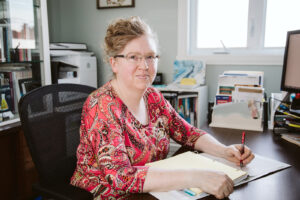There is a common belief that anyone who speaks two languages is capable of doing written translation. This reasoning appears logical on the surface, because most bilinguals can convey the gist of what someone is saying in the other language. But written translation requires additional abilities.
Today, I’m going to show you why written translation is a skill that doesn’t come naturally just because someone is bilingual. I’ll also share some basic requirements of written translators.
 Let’s explore the idea of bilingualism. People who understand two languages can certainly express ideas orally in both. Even if they can’t match sentences exactly, they can convey the same general information. In conversation, grammar rules are more relaxed, and people are generally patient while someone tries to express what they are thinking.
Let’s explore the idea of bilingualism. People who understand two languages can certainly express ideas orally in both. Even if they can’t match sentences exactly, they can convey the same general information. In conversation, grammar rules are more relaxed, and people are generally patient while someone tries to express what they are thinking.
But it’s just not the same with written translation! When you speak, it is acceptable to “edit” in real time. You can pause, say “Uh”, correct what you just said, or try out words until you get the right one. But in written material, these edits must be invisible.
There are standard writing practices to be respected, and readers become impatient with typos and with sentences that are hard to follow. Talking about an idea and being able to express it properly in writing are two different things.
And that’s the crux of this translation myth. Just because someone speaks two languages does not automatically mean they have good writing skills. Nor does it mean they are capable of written translation: this is a skill that is learned through training and experience, although there are ways to accelerate that process.
 BASIC REQUIREMENTS FOR WRITTEN TRANSLATORS:
BASIC REQUIREMENTS FOR WRITTEN TRANSLATORS:
Not everyone who is bilingual is cut out to be a written translator. Here are two of the criteria I use when recruiting new members for my nonprofit translation team, The King’s Translators.
- Do you have good reading comprehension skills in the language you will be translating FROM?
- Do you have great writing skills in the language you will be translating INTO?
Using these criteria along with 6 other questions has allowed us to avoid wasting our time and the potential translator’s time, by pre-screening members. Skipping this step in the early days of our team resulted in low-quality translations that required more time to “fix” than it would have taken to re-translate them.
Today, you’ve learned that not all bilinguals are capable of creating good translations. But you might be one of those who is a translator in the making! And if you are in a position where you are forming a translation team for your organization, now you know that it is important to have a list of criteria for potential members.
Now, in the Comments section below, it’s your turn to tell me about your translation activities or future plans.
Have a great day!
Liane 🙂
